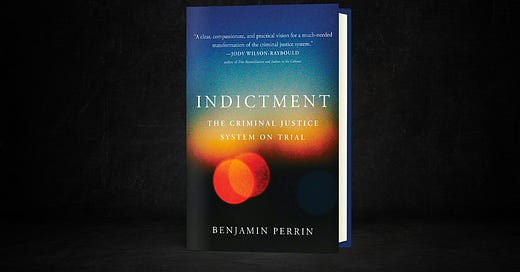Benjamin Perrin's Book Indictment Should Be Mandatory Reading for Criminal Justice Personnel
A Book Review by Aaron Pete
In my role as a Native Courtworker, I interact with various key figures in the criminal justice system, including judges, defense counsel, and probation officers, to name a few.
While these professionals undoubtedly wish the best for the clients we advocate for, navigating the criminal justice system remains a challenge due to limited access to vital educational resources.
Benjamin Perrin’s "Indictment: The Criminal Justice System on Trial" emerges as an essential read for anyone aiming to better understand the complexities of this system.
The book starts by delving into the concept of trauma, its impact on individuals, and its correlation with criminal behaviours, drawing references to the work of esteemed addiction expert, Dr. Gabor Mate.
A striking observation from the book mirrors my concerns: the decision-making process surrounding potential system reforms.
All too often, these discussions occur in lavish settings, far removed from the very individuals the system is meant to serve. Benjamin Perrin recounts being offered a $100.00 burger in my interview with him. This disconnection underscores the prevailing divide between the educated elite and the marginalized.
The first half of "Indictment" paints a vivid picture of the system's shortcomings, particularly its approach to substance criminalization, mental health stigmatization, and the challenges faced by minority groups. As someone constantly highlighting the issues faced by Indigenous communities, this section deeply resonated with me.
However, Perrin doesn't stop at identifying problems. In the latter half, he presents innovative, feasible solutions anchored in a profound grasp of Indigenous justice principles, trauma, and healing.
I wholeheartedly recommend "Indictment" as a foundational text for discussions on justice reform. Those who've taken the time to immerse themselves in its contents not only exhibit a commitment to understanding the system's flaws but also to amending them for a better Canadian justice landscape.
Rating: ★★★★★
I confidently give this book a full 5-star rating. It's not just a critique; it's a guide to understanding and bettering the Canadian criminal justice system.




